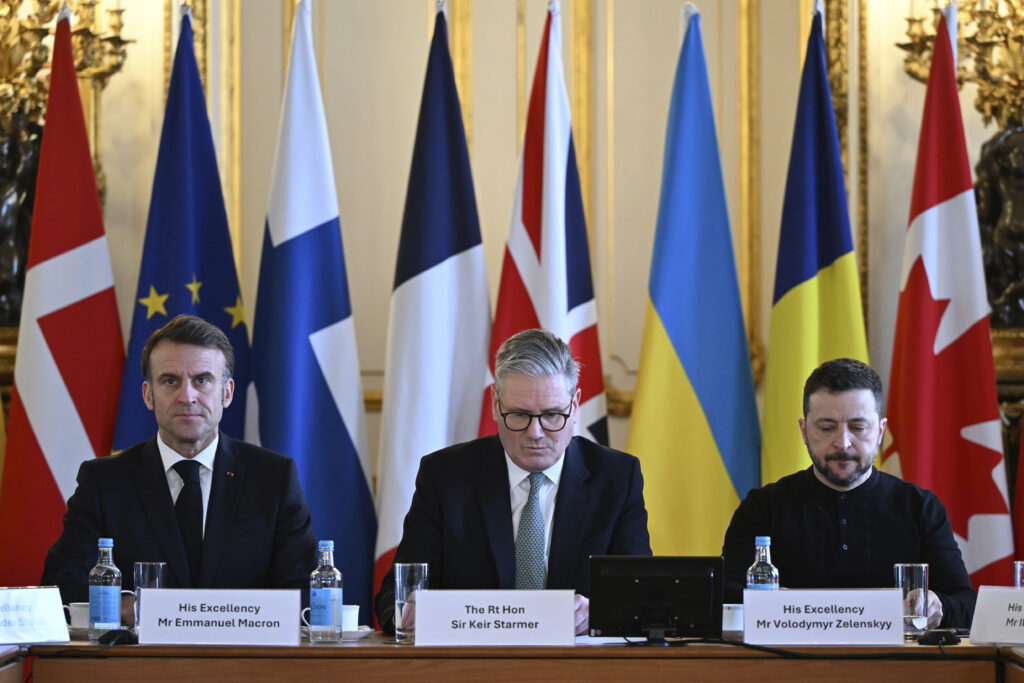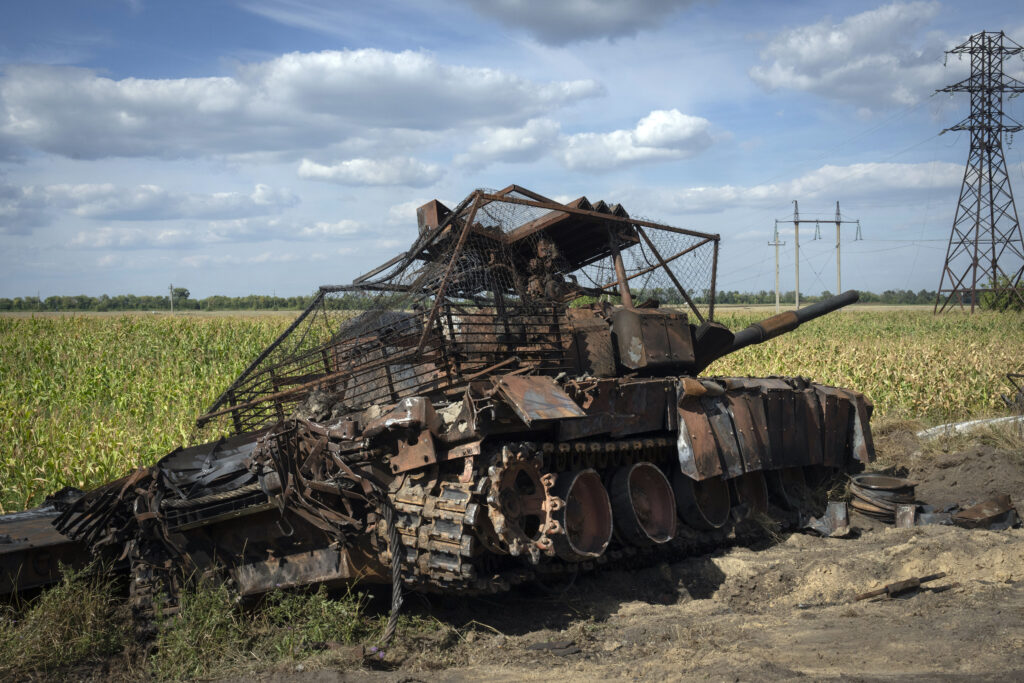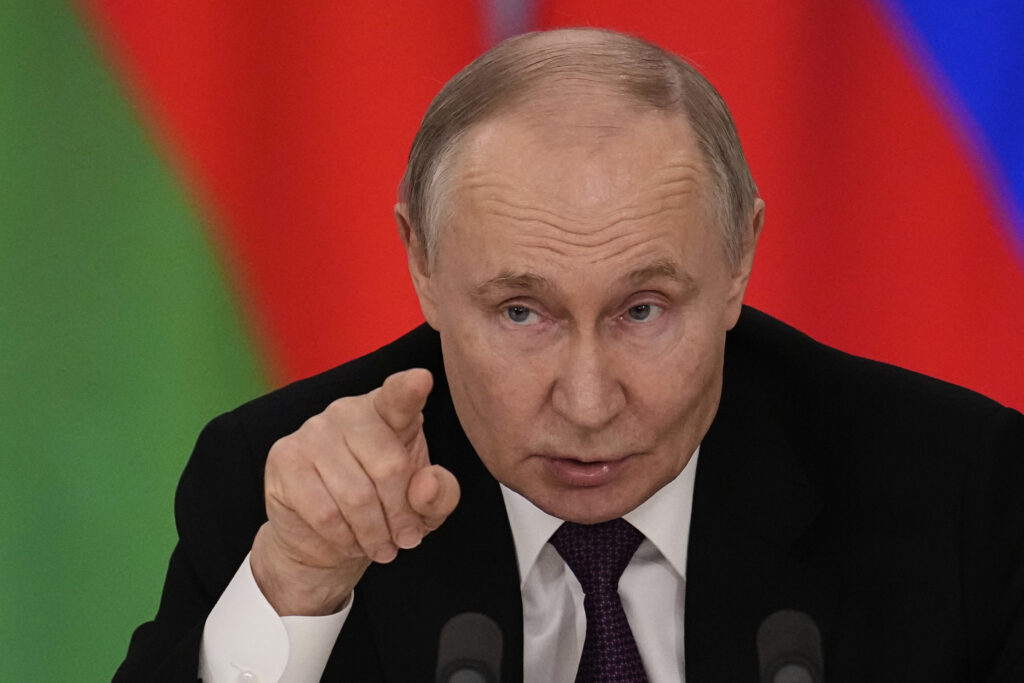No Longer a Hotline: Trump’s Call With Putin This Morning Reflects New Limits to Big Powers
France, Britain suggest willingness to send troops to enforce potential peace pact in Ukraine amid uncertainty over scope of Putin’s demands.

Last weekend, a French Airborne Warning and Control System plane flew a long reconnaissance mission over the Black Sea, near Russia-controlled Crimea. Two French Rafale fighter jets flew alongside for protection. The intel gathering mission for Ukraine was not a NATO mission. It was purely French.
This morning, President Trump and President Putin are to talk on the phone. One goal, in Mr. Trump’s words, is “dividing up certain assets” between Russia and Ukraine. Yet as the two leaders link up for a telephonic version of the Yalta summit of 1945, the French patrol near Yalta illustrates how blocs are shifting in 2025.
Yesterday, foreign ministers of the European Union’s 27 countries met in Brussels and offered “broad political support” for doubling aid to Ukraine, to $44 billion this year, according to the EU foreign policy chief, Kaja Kallas.
Separately, at London, more than 30 countries signed up — without America — to take part in a “coalition of the willing” to support Ukraine, a spokesman for Prime Minister Starmer said yesterday at London. On Saturday, Mr. Starmer held a video conference call with Western leaders. The goal was to coordinate support for a ceasefire — if Mr. Putin agrees to one.

Britain and France have committed to sending a total of 10,000 soldiers to Ukraine for a peacekeeping force. Australia and Sweden indicate they will contribute. On Thursday, military planners of 30 armies — without America — are to meet at London to discuss rules of engagement.
Mr. Trump has ruled out American “boots on the ground” in Ukraine. For their part, Russian officials are publicly dismissive. “Hot air” is how Russia’s deputy foreign minister, Alexander Grushko, dismissed the discussions on Monday.
“If they appear there, it means that they are deployed in the conflict zone with all the consequences for these contingents as parties to the conflict,” Mr. Grushko warned in comments published by Izvestia news site. “We can talk about unarmed observers, a civilian mission that would monitor the implementation of individual aspects of this agreement, or guarantee mechanisms. In the meantime, it’s just hot air.”
In response to Russian complaints about peacekeepers from NATO nations, President Macron told regional newspapers last weekend: “Ukraine is sovereign. If it asks for allied forces to be on its territory, it’s not something for Russia to accept or not.” Mr. Starmer’s spokesman agreed, saying: “It is worth remembering that Russia didn’t ask Ukraine when it deployed North Korean troops to the frontline last year.”

The moves by Britain and the EU to back Ukraine seemingly curb the ability of the Russian and Americans to sell out Ukraine’s interests in one big power telephone call. With Europe’s backing, it is hard to see Kyiv acquiescing to such Russian maximalist demands as reducing Ukraine’s million-man army to a lightly-armed 50,000-man national guard or surrendering Kyiv-controlled portions of Ukrainian regions claimed by Russia.
Prior to the call, Bloomberg reports, Mr. Putin is proposing a cutoff in American military aid to Kyiv as a precondition of any potential ceasefire agreement.
Eager for a deal, Mr. Trump is expected to offer today a big package. His aides have talked about “a nuclear power plant.” This probably refers to Zaporizhzhia Nuclear Power Station. The largest such station in Europe, Zaporizhzhia has six Soviet-era reactors with a total capacity of six gigawatts. Located near the front line, the plant was disconnected from the Ukrainian grid shortly after Russian troops took it over, in March 2022.
Conceivably, Russia could give up all or partial control in return for lifting sanctions blocking Russia’s oil and gas exports to the West. Mr. Trump would like to get more Russian oil on the market, a move that could hold down gasoline prices in America. There is little support in Europe for lifting sanctions on Russia.
Some Americans and Europeans are skeptical of Mr. Putin’s desire for peace after his standoffish response last week to the America-Ukraine agreement for a 30-day ceasefire.
“Time will tell whether Putin is deceiving us,” Senator Rounds, Republican of South Dakota, told CNN’s “State of the Union” program on Sunday. “Whatever agreements we make, they have to be enforceable, or they will not work when we’re dealing with Mr. Putin.”
Russia “does not give the impression it sincerely wants peace,” Mr. Macron told Agence France-Presse. “Russia must respond clearly and the pressure must be clear, in conjunction with the U.S., to obtain this ceasefire.”

The Danish foreign minister, Lars Løkke Rasmussen, said Sunday at Brussels: “Ukraine agreed to the U.S. idea a long time ago, but Putin’s silence doesn’t inspire much hope.”
Regardless of the outcome of today’s call, European military support for Ukraine needs to remain strong, Lithuania’s foreign minister, Kestutis Budrys, told Reuters at Brussels on Sunday. He predicted: “Ukraine’s armed forces will be the main deterrence forces for Russians not to return.”
Although Mr. Trump is eager for a quick deal, new opinion polls indicate that he has not brought the American public along with him.
According to a Reuters/Ipsos poll conducted last week, 47 percent of interviewed Americans disapproved of Mr. Trump’s stance on the Russia-Ukraine war, compared to 36 percent who approved. Asked if the American president is “too closely aligned with Russia,” 89 percent of Democrats agreed, while only 27 percent of Republicans did.
Similarly, a CNN poll released Friday found that 55 percent of respondents disapproved of Mr. Trump’s approach to the war in Ukraine, compared to 44 percent who approved. A Quinnipiac University poll, also completed last week, found that 58 percent of respondents disapproved of Trump’s handling of his White House meeting with President Zelensky, compared to 35 percent who approved.

In Russia, Mr. Putin enjoys a popularity bump. It is fueled by Russia’s near expulsion of Ukrainian soldiers from Kursk, a Russian region partially occupied by Ukraine seven months ago.
Yet many analysts say that Mr. Putin is not eager to get Russia off its war footing, a move that could lead to an easing of censorship. According to Ukrainian military sources, in three years of war, Russia has lost about 200,000 soldiers killed and 650,000 wounded.
These are 10 times the number of casualties incurred by the Soviet Union during its decade-long occupation of Afghanistan in the 1980s. Less than two years after the Soviet withdrawal from Afghanistan, the Soviet Union collapsed.

